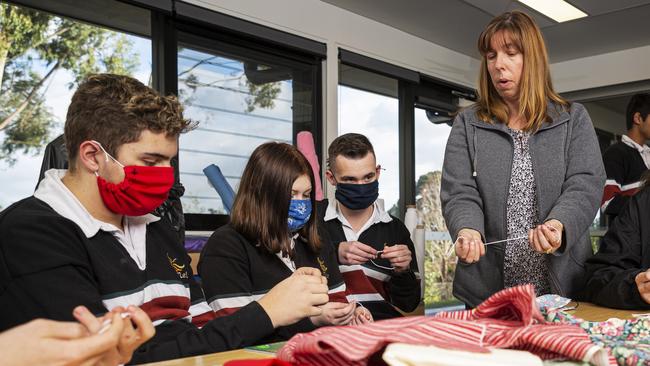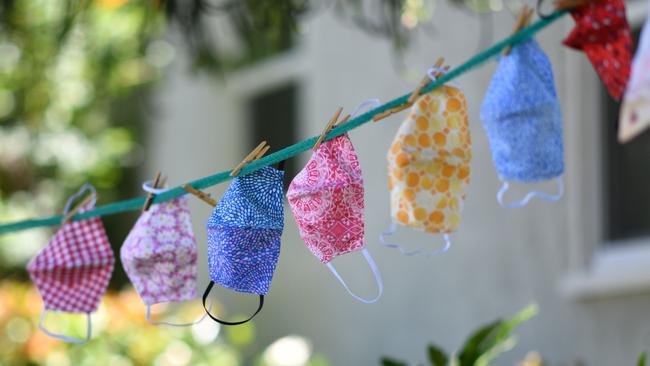Maskne: How to protect your skin from acne while wearing a face mask
With face masks mandatory for residents in lockdown areas, dermatologists are encouraging Victorian’s to protect their skin against irritations. Here’s how you can avoid “maskne” while wearing a face mask.
HS Coronavirus News
Don't miss out on the headlines from HS Coronavirus News. Followed categories will be added to My News.
With mandatory mask wearing coming into force for Metropolitan Melbourne and Mitchell Shire residents, dermatologists are encouraging Victorian’s to protect their face against skin irritations.
The term “maskne” is being used to describe what dermatologists would otherwise call “acne mechanica”.
This refers to irritation that is formed by excess heat, pressure and rubbing against the skin. People who often wear helmets and chin straps are prone to developing acne in specific areas of the face due to the irritation.
Dermatologist Dr Chris Jalilian from Melbourne Skin and Dermatology said that maskne occurs where there’s a repeated “friction and occlusion that causes obstruction of the oil gland and hair follicle leading to acne formation”.
“In the case of maskne or mask-induced acne, sweat and high humidity of the expelled trapped air can block the pores of the skin,” he said.
This can lead to the formation of a white or black head which “provides a good environment for bacterial growth”.

Although Dr Jalilian said it’s yet to be “formally acknowledged” whether wearing a mask can be the “single one factor” in causing acne, he said it could occur.
“I haven’t yet seen a patient where I can contribute their cause of acne to wearing a mask alone but it is possible,” Dr Jalilian said.
Dermatologist Dr Eric Poon from Camberwell Dermatology & Skin Cancer Clinic said maskne has been recognised by his overseas colleagues where face masks have been mandated.
“Maskne is a real entity, although we haven’t really encountered much of it yet in clinical practice,” he said.
Dr Jalilian said to consider the mask material you wear as it’s “constantly in contact” with the skin.
“Having a fine cotton lining as an additional layer at points of contact with the skin may cause less friction and add to comfort,” he said.
If your glasses fog up while wearing a mask, move them to the front of it to seal off the top.
A secure fit will keep the warm air from escaping through the top of the mask.

Those who have oily skin or already suffer from acne may be more prone to maskne.
Measures to prevent it from occurring when wearing a face mask should be considered.
Masks should be washed and changed regularly and a micellar water or gentle cleanser should be used before and after wearing one.
Dr Jalilian suggests to avoid wearing makeup underneath your mask and steer clear from thick, greasy and oily products on your skin.
“Most importantly, developing acne as a result of wearing masks is not an excuse not to wear a mask because acne is easily managed whereas coronavirus is not,” Dr Jalilian said.
“It’s a small price to pay to keep our community safe”.
MORE NEWS
